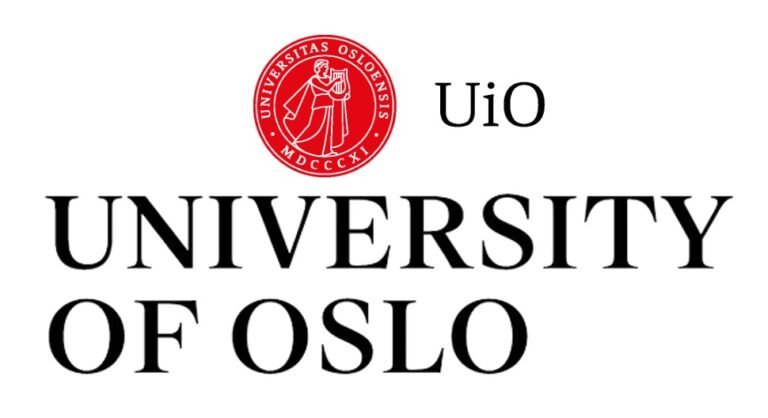About the position
The researcher (Postdoctoral level) position is part of a major research project funded by the European Research Council, with the overall objective of providing new theoretical and empirical understanding of spatial and seasonal eco-evolutionary dynamics in nature.
The primary aims of the position will be to provide new theoretical understanding of the microevolutionary dynamics of dichotomous traits, and to explore the implications for eco-evolutionary dynamics. This will include evaluating impacts of fluctuating selection, selection on phenotypic plasticity and multivariate constraints, and resulting non-additive genetic effects and gene-byenvironment interactions. The objectives will be achieved through combinations of mathematical quantitative genetic theory and individual-based modelling. Resulting theory will be used to inform analyses of eco-evolutionary dynamics arising in spatially- and seasonally varying environments, working alongside researchers analyzing field data on variable seasonal migration.
The researcher (Postdoctoral level) position provides an exciting opportunity to lead research advances in fundamental evolutionary principles, and their implications in the context of varying environments. It will suit applicants who are motivated to undertake high-level quantitative research in these areas, integrating theoretical and empirical science. Training in key concepts will be provided, and further skills in modelling and analytical approaches can be learned as required.
The position will be held within an international research group led by Professor Jane Reid at NTNU. The successful applicant will also benefit from interactions with other research groups within the Biodiversity Dynamics section at NTNU, including those led by Christophe Pelabon, Henrik Jensen, Bernt-Erik Sæther and Yimen Araya-Ajoy. There will be opportunities for international interactions, and for conference and workshop participation.
Your immediate leader is Professor Jane M. Reid.
Duties of the position
- To conceptualize and undertake new theoretical and modelling developments concerning the micro-evolutionary and phenotypic dynamics of dichotomous traits and resulting eco-evolutionary dynamics. This will include evaluating effects of fluctuating selection, selection on phenotypic plasticity and multivariate constraints, and resulting non-additive genetic effects and gene-by-environment interactions.
- To work alongside empiricists and statisticians within the research group to link emerging theoretical advances with empirical advances resulting from analyses of field data.
- To prepare high-quality work for dissemination, through manuscripts for publication in major journals, and conference and workshop presentations.
- To maintain, communicate and archive clearly annotated codes, derivations and datasets, thereby ensuring that all models, analyses and conclusions are transparent and replicable.
- To work effectively within a large collaborative research team, encompassing multiple research groups and institutions, including maintaining good communication with all colleagues.
- To help foster an active and inspiring work environment within the host research group and the Department of Biology more widely, including contributing to initiating and organizing seminars, workshops and collaborative opportunities, and responding to funding opportunities.
- To co-supervise MSc and PhD students if opportunities and requirements arise within the scope of the funded European Research Council project.
Required selection criteria
- PhD in a relevant discipline (e.g. evolutionary ecology, quantitative genetics, population ecology, or other related areas). The PhD can be already awarded or expected at the time of application but must be confirmed before the postdoctoral researcher position commences.
- Advanced quantitative skills in evolutionary ecology, quantitative genetics, population ecology, or other related areas. This ideally includes experience of theory development through mathematical and/or simulation modelling, but applicants with strong conceptual understanding and experience of empirical quantitative genetics analyses or other related forms of advanced statistics will also be considered and are encouraged to apply.
- Experience of successful high-level dissemination of research, including publications and/or conference presentations.
- Ability to clearly define scientific questions and knowledge gaps, by critically evaluating and assimilating existing theoretical literature on relevant topics.
- Strong programming skills in appropriate languages.
- Excellent written and oral English language skills.
Preferred selection criteria
- Experience of developing or applying quantitative genetics theory, ideally including latent traits.
- Demonstrated experience of, or interest in, integrating theoretical and empirical advances in the contexts of evolutionary and/or population ecology.
Personal characteristics
- Ability to work collaboratively and interactively within a large research team that involves multiple groups in different locations.
- Self-motivated, with ability to efficiently organize own time and activities on a day to day basis.
- Reliable
- Communicative
- Self-motivated
- Organized
- Collaborative
We offer
- Exciting and stimulating tasks in a strong international academic environment
- An open and inclusive work environment with dedicated colleagues
- Favourable terms in the Norwegian Public Service Pension Fund
- employee benefits
Salary and conditions
The gross salary for the position of Researcher (code 1109) is remunerated depending on qualifications and seniority. From the salary, 2% is deducted as a contribution to the Norwegian Public Service Pension Fund.
The position is open to all nationalities. However, the appointment will be made in accordance with the regulations in force concerning State Employees and Civil Servants, and the acts relating to Control of the Export of Strategic Goods, Services and Technology. Candidates who by assessment of the application and attachment are seen to conflict with the criteria in the latter law will be prohibited from recruitment to NTNU.
The position is funded by a European Research Council Advanced Grant. It is a prerequisite that you can be present at and accessible to the institution daily.
About the application
The application and supporting documentation must be in English.
Please note that your application will be considered based solely on information submitted by the application deadline. You must therefore ensure that your application clearly demonstrates how your skills and experience fulfil the criteria specified above. If, for any reason, you have taken a career break or have had an atypical career and wish to disclose this in your application, the selection committee will take this into account, recognizing that the quantity of your research may be reduced as a result.
The application must include:
- CV, certificates and diplomas
- A cover letter explaining your motivation to apply for the position, your suitability for the position, and a brief description of your relevant scientific experience and expertise
- Names and contact information for three relevant referees
Joint work will also be considered. If it is difficult to identify your specific input to a joint project, you must include evidence of your contributions. In the assessment of the best qualified applicant, we will emphasize education, experience and personal suitability as well as your motivation for the position.
NTNU is committed to following evaluation criteria for research quality according to The San Francisco Declaration on Research Assessment – DORA. This means that we pay special attention to the quality and professional breadth of these works. We also consider experience from research management and participation in research projects. We place great emphasis on your scientific work from the last five years.
General information
NTNU believes that inclusion and diversity is a strength. We want our faculty and staff to reflect Norway’s culturally diverse population and we continuously seek to hire the best minds. This enables NTNU to increase productivity and innovation, improve decision making processes, raise employee satisfaction, compete academically with global top-ranking institutions and carry out our social responsibilities within education and research. NTNU emphasizes accessibility and encourages qualified candidates to apply regardless of gender identity, ability status, periods of unemployment or ethnic and cultural background.
The city of Trondheim is a modern European city with a rich cultural scene. Trondheim is the innovation capital of Norway with a population of 200,000. The Norwegian welfare state, including healthcare, schools, kindergartens and overall equality, is probably the best of its kind in the world. Professional subsidized day-care for children is easily available. Furthermore, Trondheim offers great opportunities for education (including international schools) and possibilities to enjoy nature, culture and family life and has low crime rates and clean air quality.
As an employee at NTNU, you must at all times adhere to the changes that the development in the subject entails and the organizational changes that are adopted.
A public list of applicants with name, age, job title and municipality of residence is prepared after the application deadline. If you want to reserve yourself from entry on the public applicant list, this must be justified. Assessment will be made in accordance with current legislation. You will be notified if the reservation is not accepted.
If you have any questions about the position, please contact Professor Jane M. Reid, email jane.m.reid@ntntu.no. If you have any questions about the recruitment process, please contact HR-consultant Emilie Sjøvoll Mikkelhaug, e-mail emilie.s.mikkelhaug@ntnu.no.
If you think this looks interesting and in line with your qualifications, please submit your application electronically via jobbnorge.no with your CV, diplomas and certificates attached. Applications submitted elsewhere will not be considered. Upon request, you must be able to obtain certified copies of your documentation.
The position is initially three years, with possibility of extension.
The start date is flexible within 2025.
Application deadline: 17.03.2025





